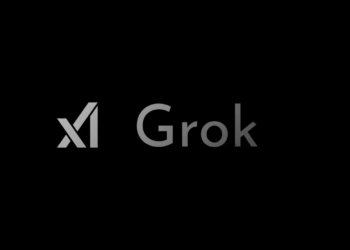Financial systems have evolved through history, shaped by the rise and fall of empires, the discovery of new trade routes, and the integration of various cultures. Interestingly, these ancient financial practices continue to influence modern markets, even in unexpected places. A notable instance of this seamless blend of the old and the new is the incorporation of online forex trading in Kenya with the country’s rich tapestry of traditional financial strategies.
Kenya, with its vast savannahs and iconic wildlife, might seem like a stark contrast to the bustling forex markets of Wall Street or London. Yet, the country has an intricate history of trade, barter, and financial systems that have been practiced for centuries by its indigenous communities. The Maasai, for example, have always been cattle herders, viewing livestock as a primary currency. Even today, the value of livestock plays a crucial role in various ceremonies and is considered an indicator of wealth.
But how does the Maasai tradition of cattle trade connect with online forex trading in Kenya? The connection lies in the inherent principles of trade, valuation, and negotiation. Just as a Maasai herder must keep abreast of changing livestock values—determined by factors like rainfall, grazing quality, and regional demand—a Kenyan forex trader has to remain updated on international currency valuations, impacted by global political events, economic announcements, and market sentiment.
This parallel is not limited to the Maasai. Across the world, ancient cultures had their unique financial systems and strategies. The ancient Chinese practiced ‘Qianzhuang’, which can be considered a precursor to modern banking. They offered loans, facilitated money transfers, and even allowed for deposits, remarkably resembling contemporary banking operations.
The Inca Empire, despite lacking a formal written language, had an intricate accounting system using ‘quipus’, a series of knotted cords. These were used to record numerical information, keeping track of transactions, census data, and more. In a world driven by digital ledgers and blockchain, it’s intriguing to think of a civilization that used knotted strings to maintain its financial records.
Today’s financial tech platforms can draw inspiration from these ancient practices in multiple ways. For instance, modern risk assessment tools can incorporate the collective decision-making strategies of indigenous tribes. The foundational logic behind a community deciding whether to trade or barter goods, based on perceived value and future utility, isn’t far removed from algorithms forecasting currency value in forex markets.
Moreover, the trust systems of old can offer insights into developing better peer-to-peer lending platforms. Before the advent of credit scores, communities relied on interpersonal relationships and reputation. If a person was known to default on their debts, word would quickly spread, making others wary of entering into financial agreements with them. In a similar vein, modern peer-to-peer platforms rely heavily on user reviews and ratings.
Another fascinating realm lies in the merging of traditional and modern investment strategies. Consider ‘Chit Funds’ from India, a kind of rotating savings and credit association system. Members contribute to a pot, and one member takes the entire sum once a month. It’s both a savings and borrowing mechanism. With the advent of digital platforms, such systems can be streamlined, transparent, and made globally accessible.
The synthesis of ancient wisdom and modern technology in the financial realm underscores the importance of acknowledging our historical foundations as we forge ahead. In a rapidly digitizing world, there’s a tendency to perceive newer technologies as superior, dismissing age-old systems as obsolete. However, the enduring influence of ancient financial practices on modern markets serves as a testament to their resilience and relevance. Embracing this legacy can also address contemporary challenges. For instance, as the world grapples with financial inequalities, incorporating the communal and inclusive ethos of traditional systems could pave the way for more equitable financial frameworks. Similarly, the sustainable and holistic economic practices of ancient cultures could guide today’s market leaders in fostering environmentally and socially conscious markets. As the boundaries between the old and new blur, the fusion of past wisdom with present innovations promises a more stable, inclusive, and sustainable financial future for all.
So, as we marvel at the advancements in the financial world, from the intricacies of online forex trading in Kenya to the high-frequency trades of Tokyo, it’s vital to remember and respect the deep roots of these practices. Ancient financial systems, with their wisdom and time-tested strategies, continue to offer invaluable insights. By intertwining these age-old practices with modern innovations, we not only preserve history but also enrich the financial landscape, ensuring it’s robust, inclusive, and ever-evolving.













